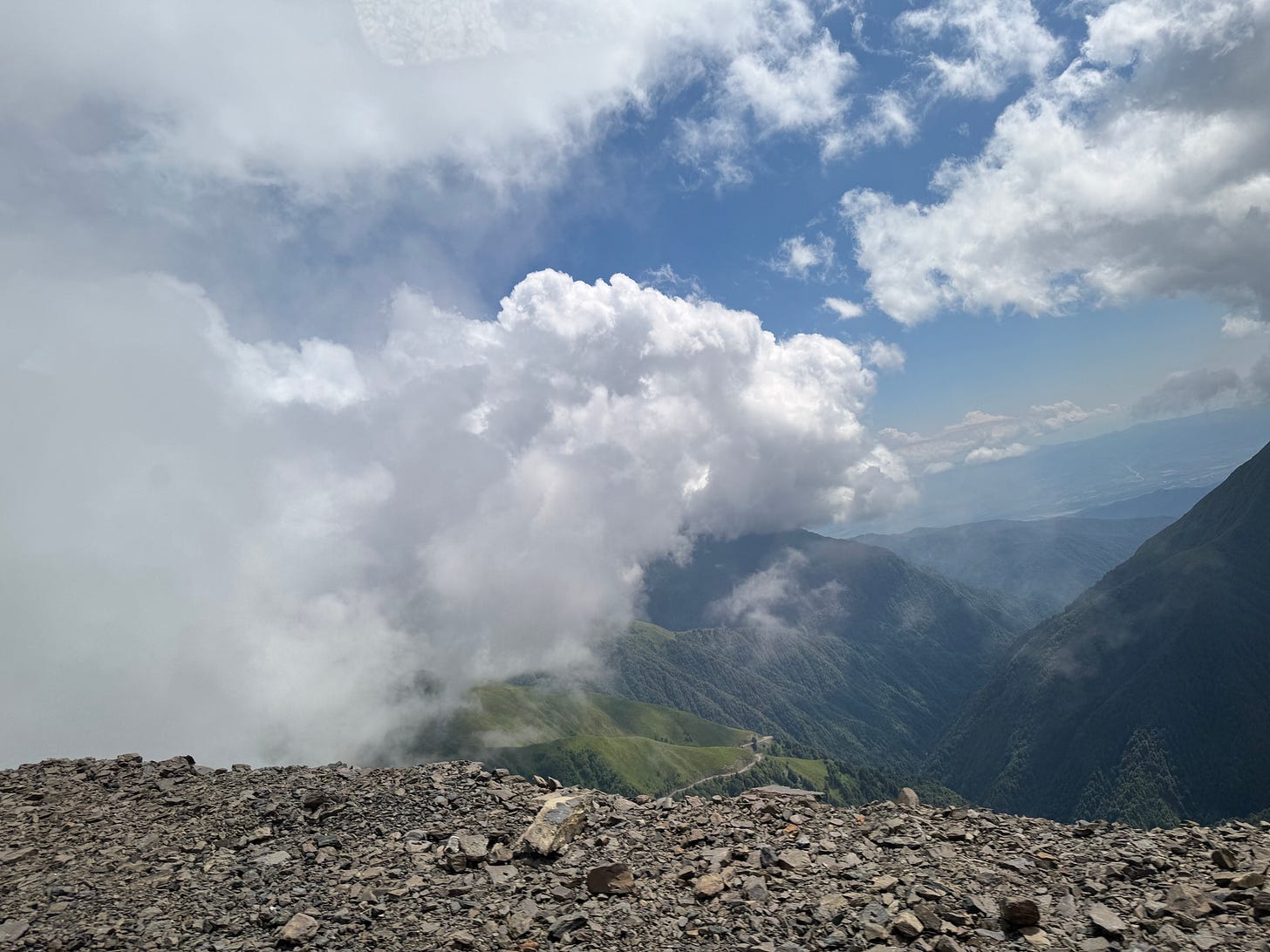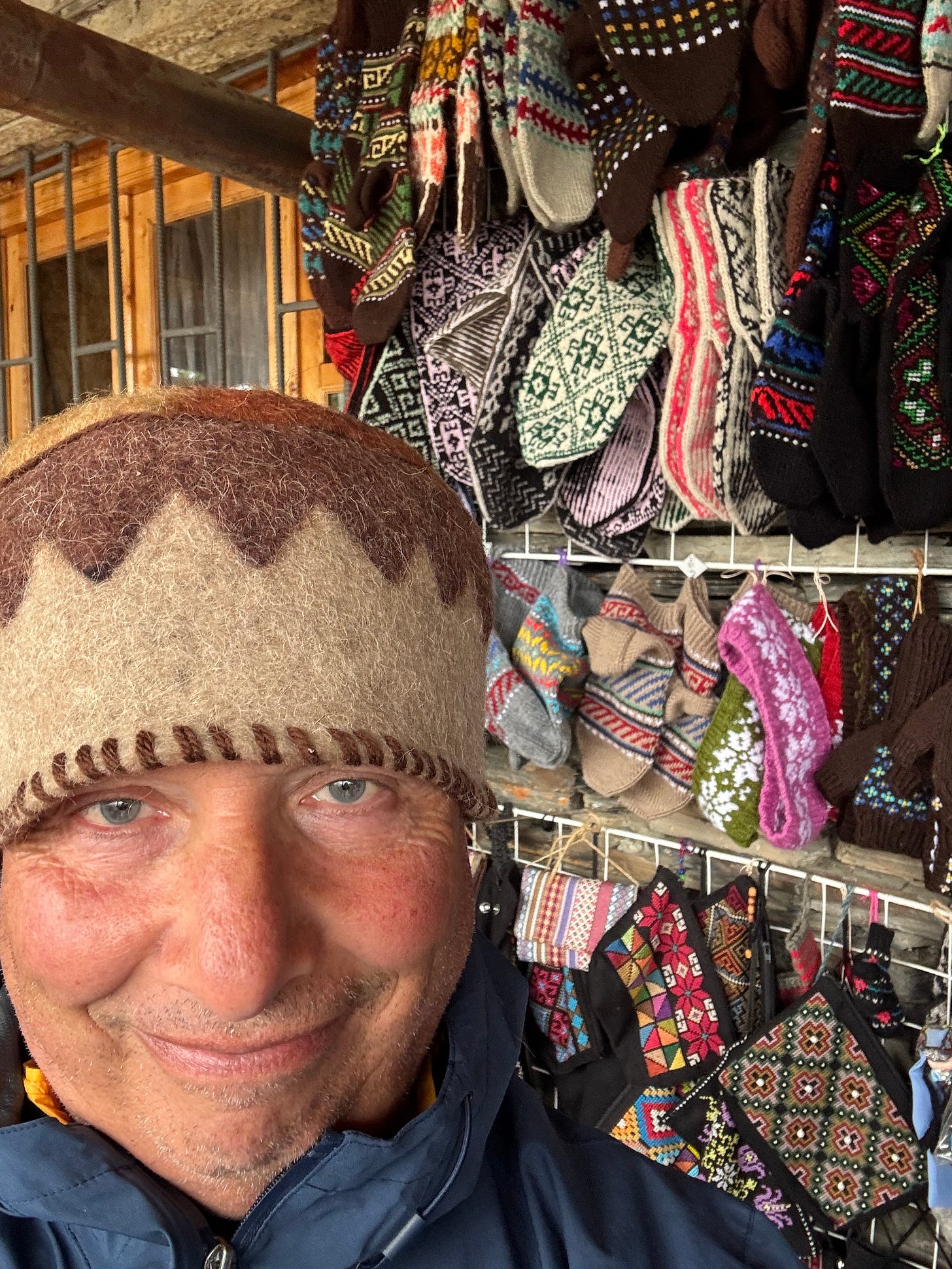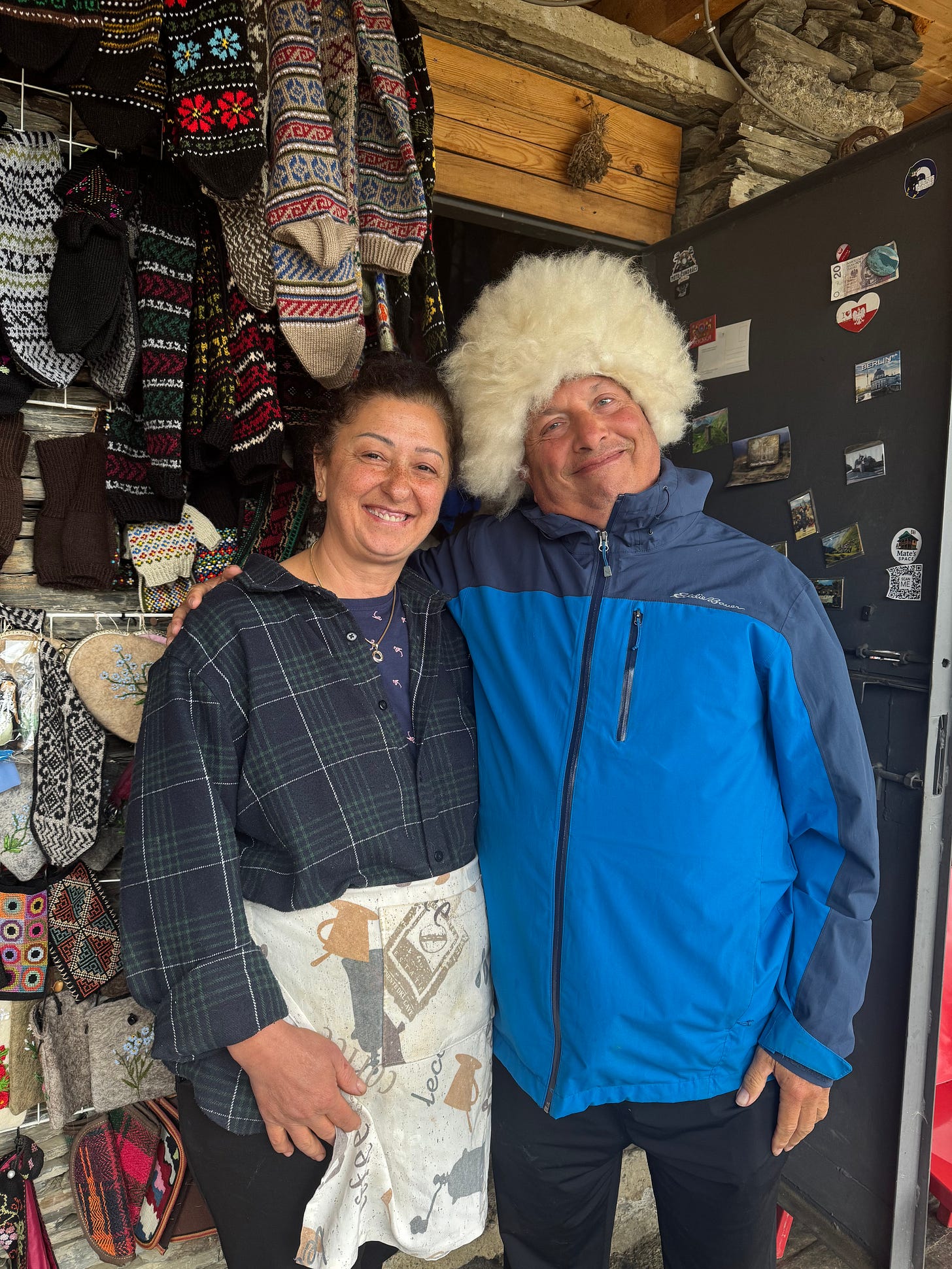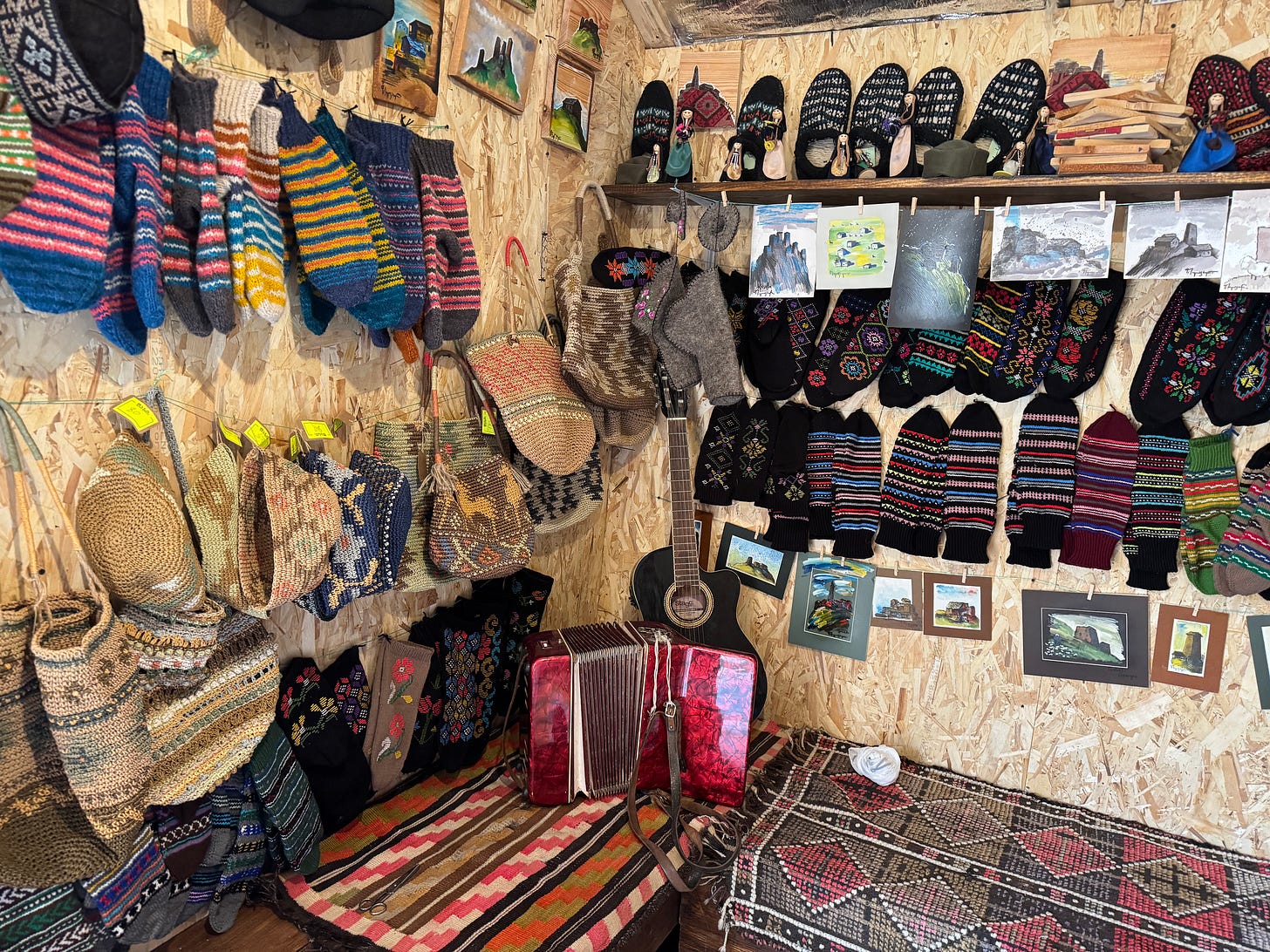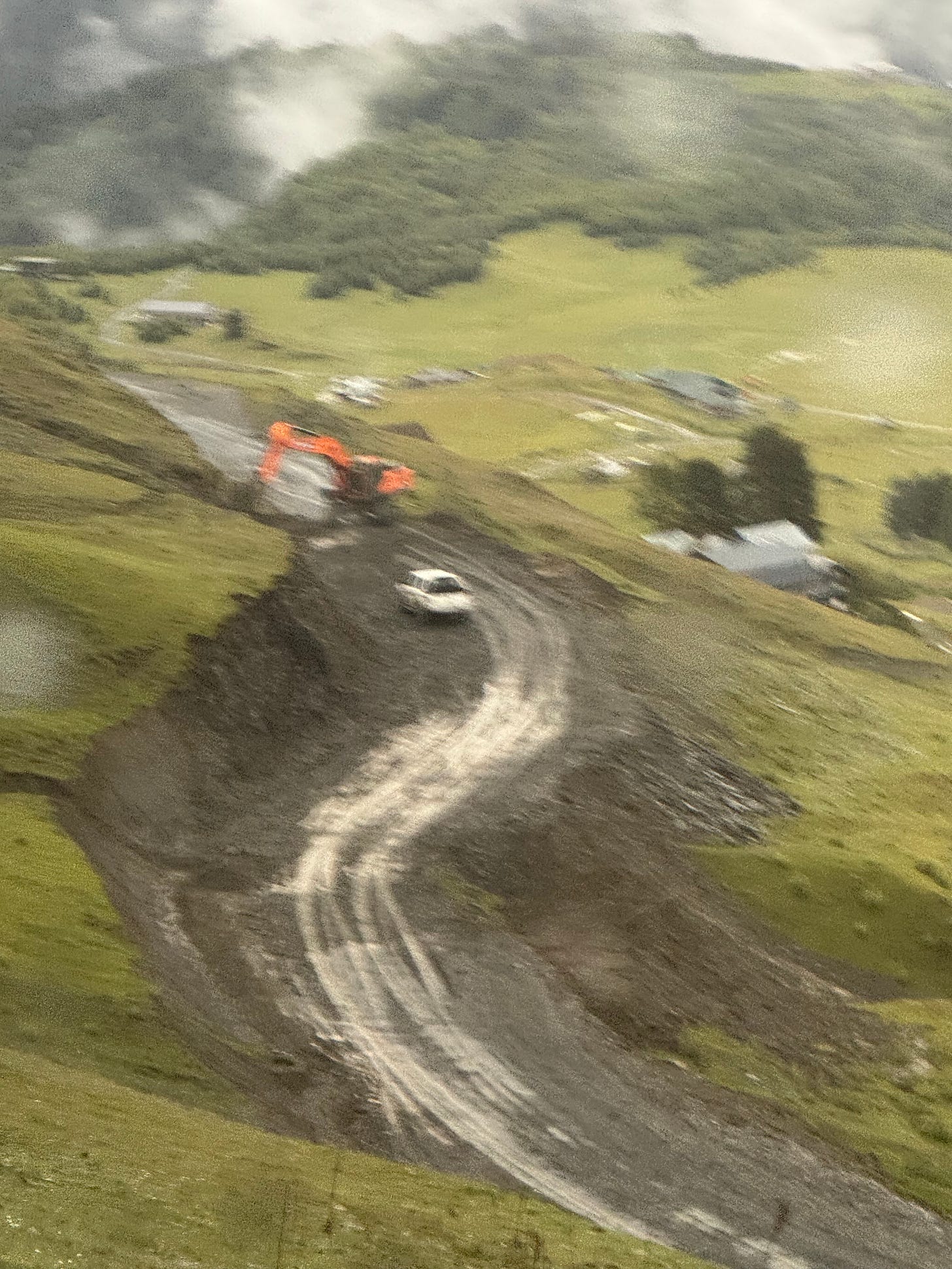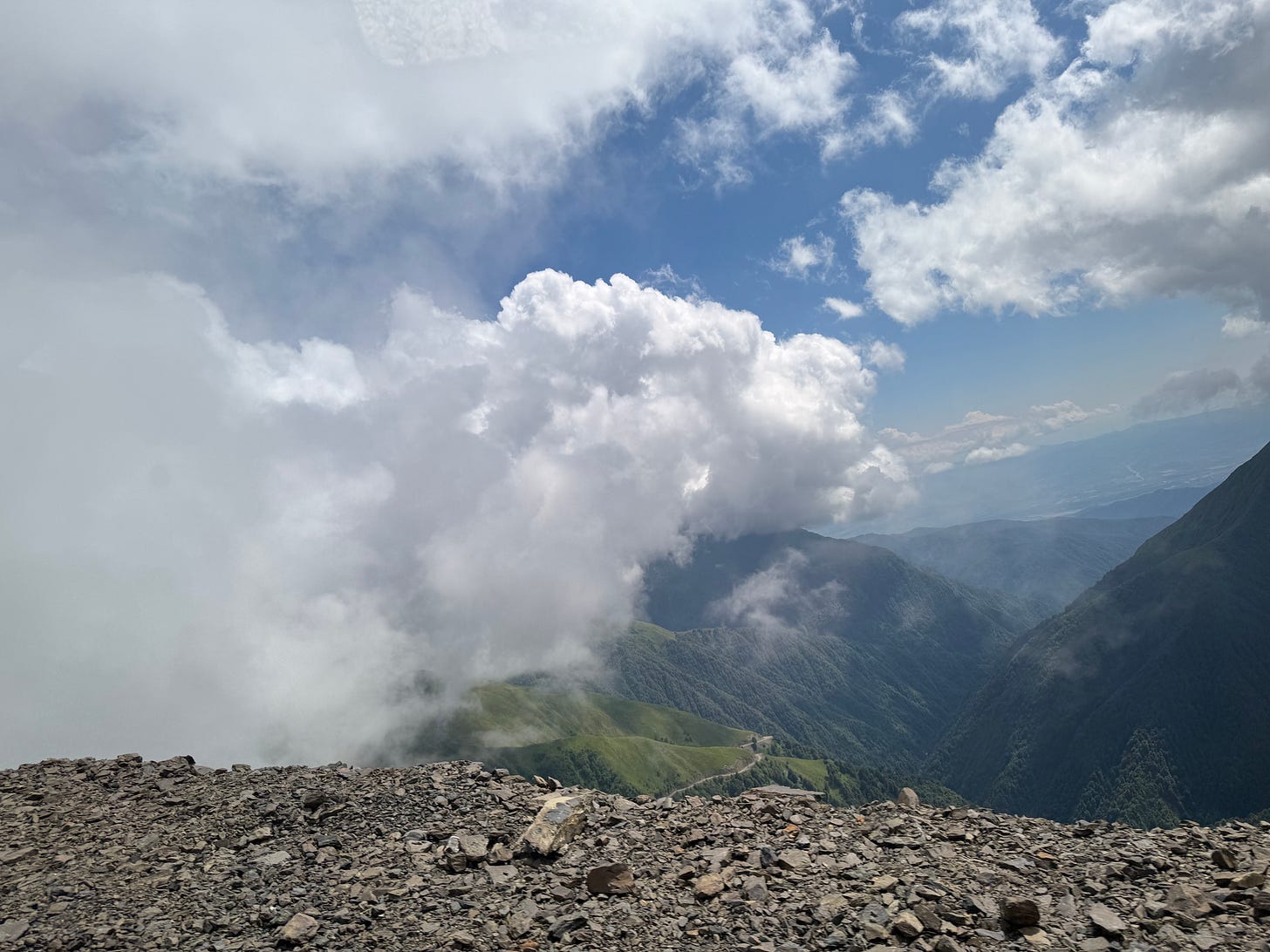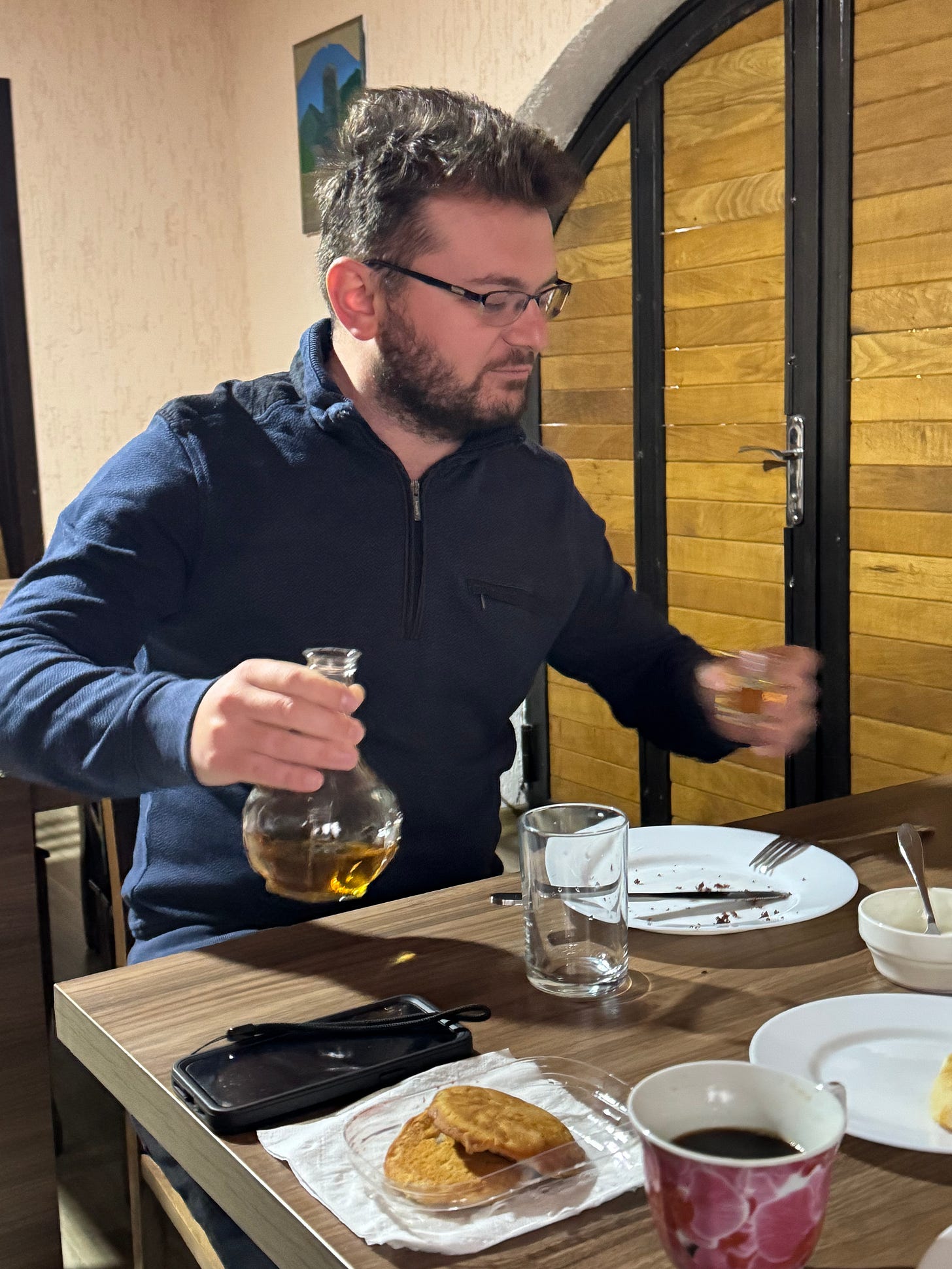We awaken to the sound of a downpour. At breakfast, we all tell the same story: We heard the rain and knew that meant at least another day and night in Omalo.
At breakfast, Jonah shows us a video he’d received of a rescue across the missing section of roadway. What appeared to be three people are huddled in the bucket of a large crane as they swung across the missing roadway to safety. There’s no information about what happened next and whether there was any way for them to continue from there.
We also don’t know whether the flooded road we’d passed through on our side of the pass had improved or worsened.
The skies clear somewhat after breakfast, and we allow ourselves some optimism. Dense clouds puff across the hillsides, as the sun strains to make an appearance.
My friend Kathi asks Jonah if she could go for a short walk.
“Stay nearby,” he tells her. “There’s no WiFi or phone service away from the guesthouse, and we may need to make a quick getaway. If the road does open up, we may have just a short window to get through it. If it starts raining again, that window will close quickly.”
That advice quickly became moot, as huge raindrops clunk loudly into the guesthouse roof. We all retreat to our rooms for some undercover warmth.
Lunchtime comes and goes, and Jonah calls us together for an update.
“It’s looking more and more like tomorrow,” he tells us. “I hope.”
The skies had cleared somewhat, and he suggests we drive further into the mountains–above the clouds and past several deserted villages–and do an easy hike.
We first walk to a nearby two-room shop/cafe/hostel both for lunch snacks and for wool hats and gloves–noting that we were doing so on the Fourth of July! We’d all packed assuming we’d spend little time outside, and that the temps would be in the high 50s and 60s. Although those were the conditions a few days ago and forecasted for next week, we are now solidly in 40s territory.
Hats made in the village fill two walls and come in two broad categories: wool caps and traditional Tushettian headdresses reminiscent of the King’s Guard. While the beefeaters’ caps were designed to make the soldiers seem taller and more intimidating in battle, the Tushettian version simply makes me look silly and far too reminiscent of the late comedian Marty Allen.
I go with a wool cap and somewhat matching wool mittens. When I reach my payment to the shop owner, I signal that I didn’t need any change. She smiles, shakes her head, reaches behind her and hands me a shop-made pastry. Great compromise.
We are about 90 minutes into our afternoon’s explorations when Jonah’s phone rings. It’s Daji with an update: It’s possible we will be able to make it through tonight. Jonah hustles us back into the van.
“It may or may not work out, but let’s get back to the hotel and pack up just in case,” he tells us.
Along the way back, we pass two other vans, and Davit asks their drivers if they have further updates. Nothing definite.
We pass a vehicle with official lettering. Jonah explains that it’s an official with public works, one of the departments responsible for road repairs. Again, nothing definite.
As we arrive in Omalo, we make another trip to the store for snacks, just in case we have to head out right away and without dinner. Jonah’s phone rings. It’s Daji. She’s on speaker, and her tone isn’t optimistic.
“Daji has reports that emergency services are turning people around, and we still don’t know if the flooded road on our side has gotten any better,” Jonah says. “It’s not worth risking it tonight. Let’s see how things are in the morning.”
Actually, we’re sort of getting accustomed to our extra time in Tusheti, and the news isn’t met with groans. We’re beginning to feel that we may need to apply for residency in Tusheti, and that prospect doesn’t seem to bother anyone. Our three-day excursion has become a five-day adventure, and it feels like a bonus, not a problem.
With little notice, our host has somehow created a substantial three-course dinner. Conversation returns continuously to predictions on when and how we will make it out of Tusheti.
Still, no one expresses the least concern. We chuckle as we read social media posts from friends who had been reading our frequent updates about our stranding and expressed concern for our safety. Technically, we were indeed stranded in that a collapsed road and flooding kept us from leaving Tusheti. However, we felt anything but stranded in that we had access to explore Tusheti extensively and safely. We had food and somewhat warm lodging. We just couldn’t leave.
In retrospect, when I posted the video of the crane-bucket rescue, I should have been more specific that we were nowhere near it and using it would be a very last resort.
Dinner is punctuated by repeated shots of “chacha,” a potent form of Georgian moonshine. Each shot is toasted with a loud “Gaumarjos!” The Georgian word for “Cheers” literally means “May you win.” As I noted earlier, the Georgian greeting of “Gamarjoba!” literally means “victory.” So, quite apparently, the Georgians are a motivated culture.
They also have a beautiful, descriptive and often moving language. For example, the Georgian word for “pregnant” literally means “two souls.” “Gardacvaleba” is the word for death but literally means “transformation into the other world.” "Atinati" refers to the first ray of light that penetrates darkness.
“Shemomechama” translates into something like “I was full and had no intention to eat more, but it was so delicious, I ate it all.” Sort of like that old Alka-Seltzer commercial: “I can’t believe I ate the whole thing!”
My favorite may be “genatsvale,” a term of endearment abbreviated from a longer wish: “If you are ever in trouble, let me take your place.”
I may need some genatsvale as Jonah tells us that toasts can only be done in odd numbers. So if we want a second shot, we’ll need to drink three. I will freely admit that I had five–for medicinal purposes only, of course. At least, that’s how I remember it.
Jonah’s phone rings. It’s Daji. She has reports that cars will be let through in the morning. Work has suitably stabilized the road and cliff walls. Rain is in the forecast for next afternoon. We agree that we’ll leave at 6:15 am in case the rain arrives earlier.
As we raise our glasses for our final toast of the evening, the lights go out. There hadn’t been enough sunlight for the solar cells to charge the batteries, and now they’re dead. With cell phone flashlights showing the way, we head to our rooms and chilly beds. No one attempts a shower; there’s no hot water.




